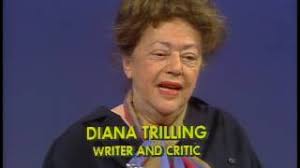19. A.O. Scott
“It would be too much to say that every
artist is a failed critic, unable to appreciate what already exists without
adding to it.” -A.O. Scott
It may be, as Scott
suggests, too much to reduce every artist to the status of critic manqué, but
what a tantalizing suggestion he makes. There is, after all, already so much out
there: so many books, so many movies, albums, plays, video games, words,
images. Under these circumstances, it can seem not only unnecessary but
positively perverse to attempt to create any further works of art. To do so, to
impose any more on an already oversaturated cultural landscape, can only reflect an embarassing failure of restraint, of imagination, perhaps even of morality. If we must
add anything further to the world of letters then, it only makes sense that we
restrict ourselves to offering a gloss on what is already there, elevating the
worthy out of the forgettable mass of stuff and engendering an
appreciation for those select few chosen objects.
This
is, of course, as the New York Times co-chief film critic and author of Better Living Through Criticism makes clear, pure fantasy. You can no more ask
people to refrain from creating than you can from reproducing. Furthermore, the
amplification of previously silenced voices means we now have access to a wider
range of perspectives than ever before, surely a laudable development. Nonetheless,
for the individual writer (or at least for this one), accepting the position
that nothing more need be created comes as a something of a relief. If we are
filled with fatigue at the amount of product being thrown at us, how many of us
also suffer from a more general fatigue that makes the creation of new work
increasingly difficult. Who, in this moment in history, has the energy to write
a whole novel or an entire memoir? (Although, amazingly, people continue to do
so.) Instead, we can choose to simply contemplate what already exists and
cannibalistically create without creating. We can practice criticism.
As it
turns out, I already have practiced criticism, or at least reviewing (whatever
distinction you wish to make between the two.) For five years, I wrote about
movies on a freelance basis for some not disreputable outlets. The style
encouraged by my editors was at once highly analytical and endlessly snappy,
even snarky. The pieces were largely self-contained reviews that were allowed
to range somewhat widely in cultural reference but were not to include too much
personal detail or to make much use of the first-person “I”. This style was and
is, by its nature, an incredibly limited form, although not one without its
uses. But during those five years, I rarely sought to expand my range beyond
these 400-1000 word pieces. I accepted a definition of criticism that
interrogated the object it was assigned to consider but never looked beyond that
object to consider the critical practice itself or the person doing the
criticizing.
If we
were, though, to put a moratorium on the creation of new art, if we were to, in
Scott’s words, give in to the “wishful declaration that the human project is
complete,” we would need not be bereft of exciting written output, provided we
turned our attention to the practice of criticism. That is, at least, if we
understand this practice to be a much more expansive pursuit than the insular,
self-contained version I used to perform. We can instead view criticism as
constituting my now-preferred definition: the whole of a person grappling with
the whole of a work or works. Criticism, so practiced, becomes a hybrid form,
drawing as much from the personal essay as it does from dispassionate analysis
and ranging freely over the expanse of human achievement to search out any
artifact or idea that might be relevant to the discussion. It doesn’t assume
that its judgements are absolute but understands that they are the tentative
conclusions of a specific person whose views are shaped by a specific set of
circumstances. It reveals and reflects on those circumstance and in so doing, it
invites the reader in rather than shutting her out. It is, at its best, its own
form of art. But by saying so, we back ourselves into an odd paradox. If artists
are failed critics and criticism is itself an art, then critics, by expanding the
scope of their pursuit into original creation, risk becoming the very thing
they have supposedly doomed to irrelevance.



Comments
Post a Comment